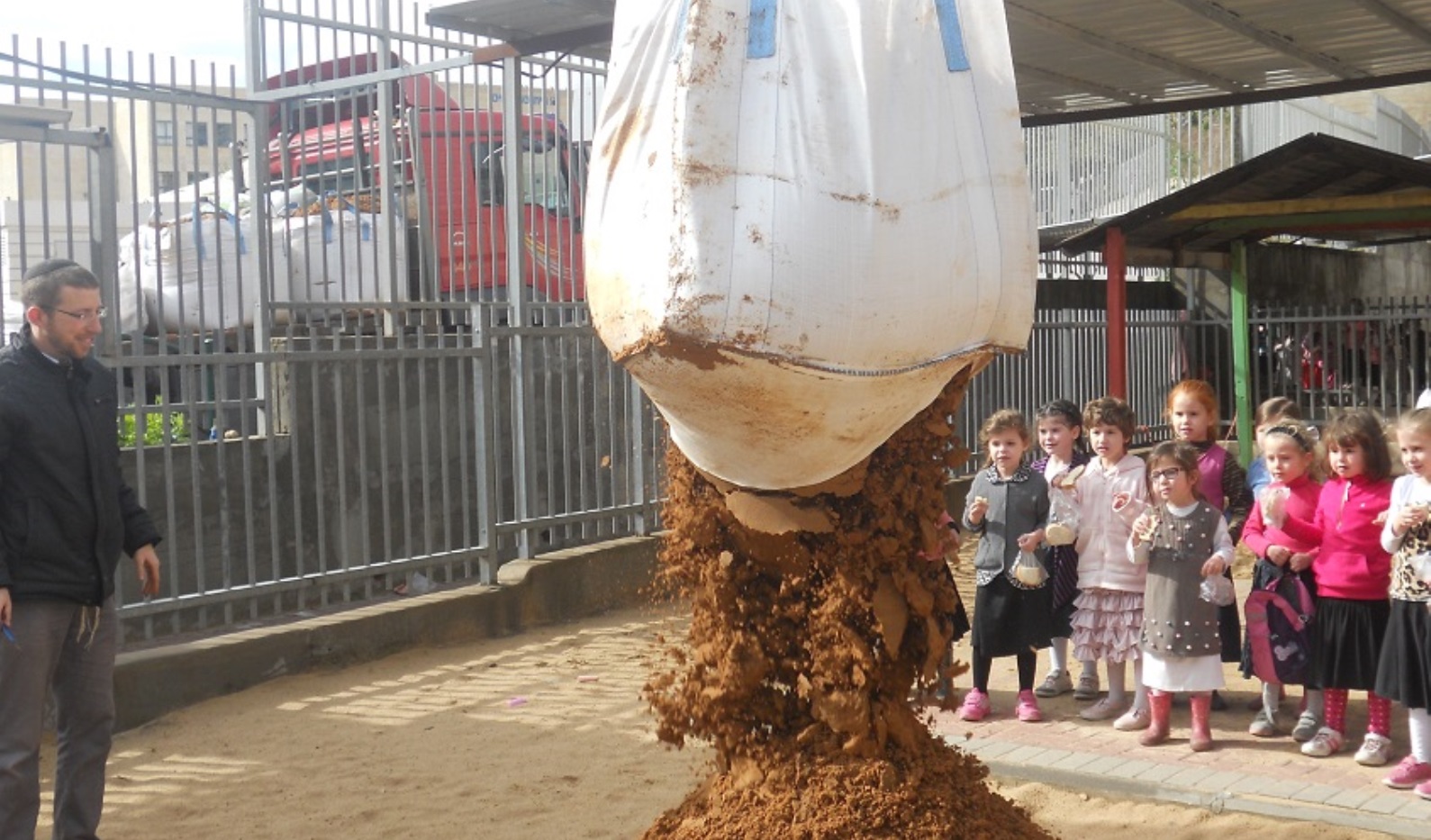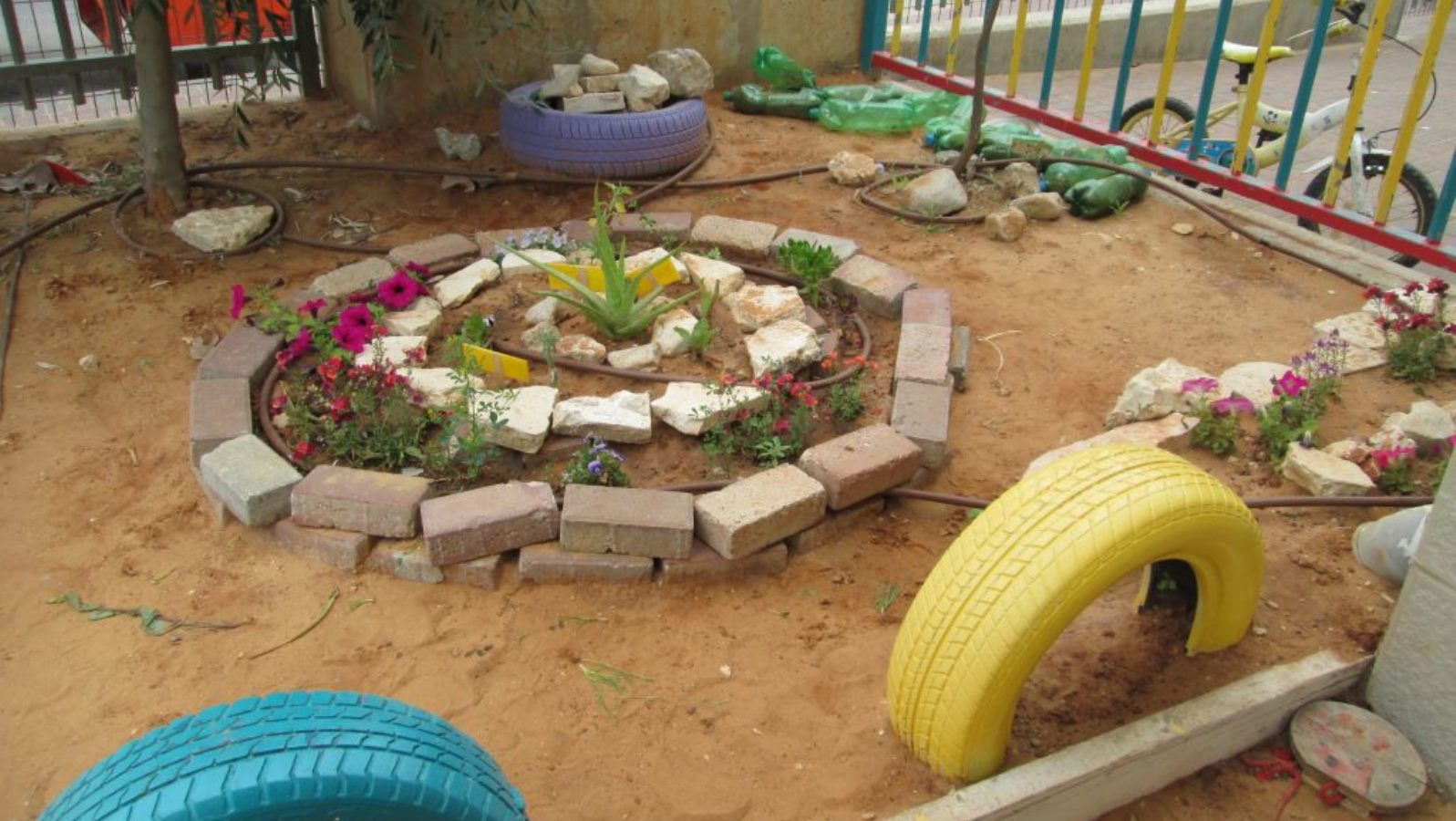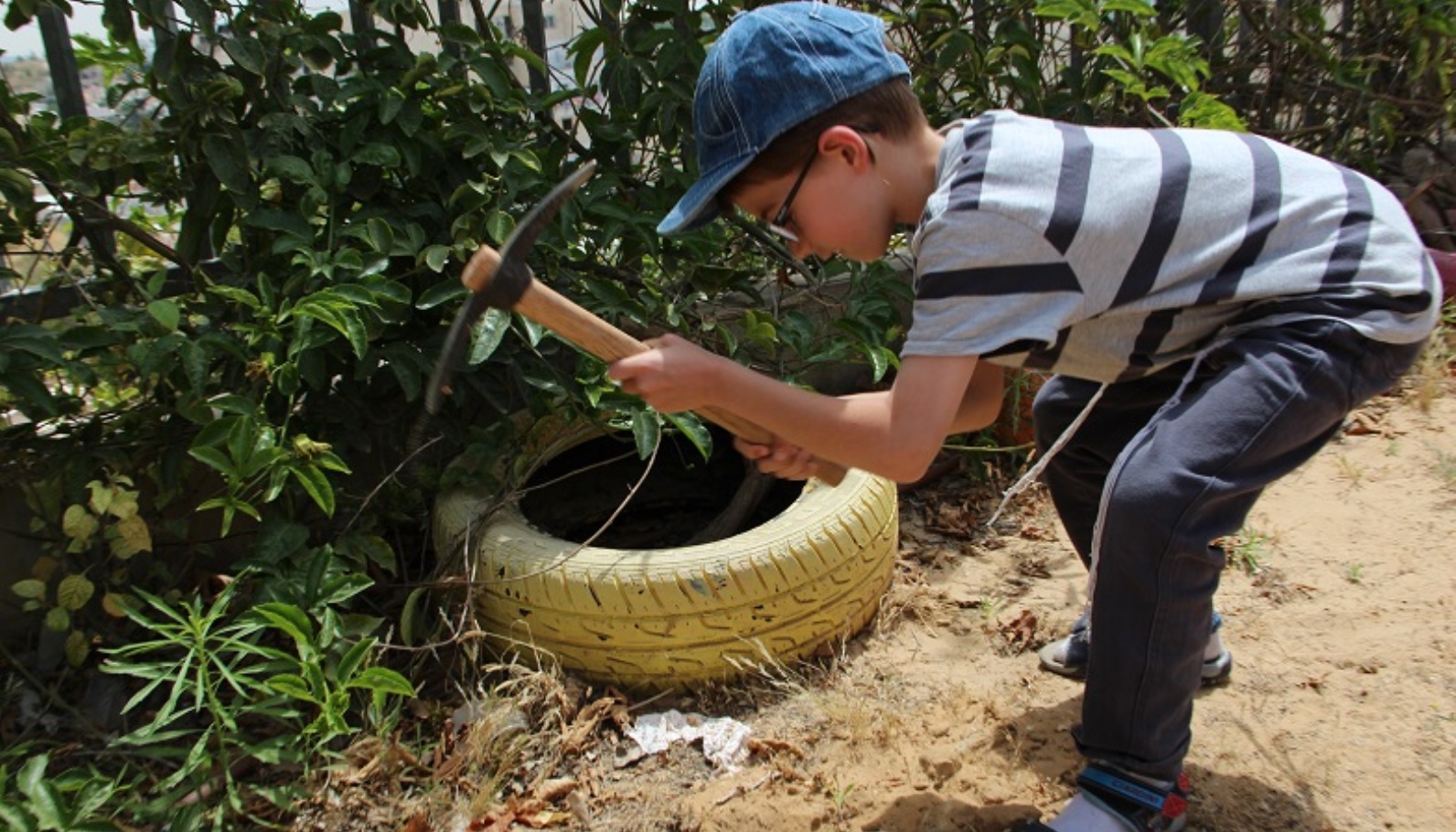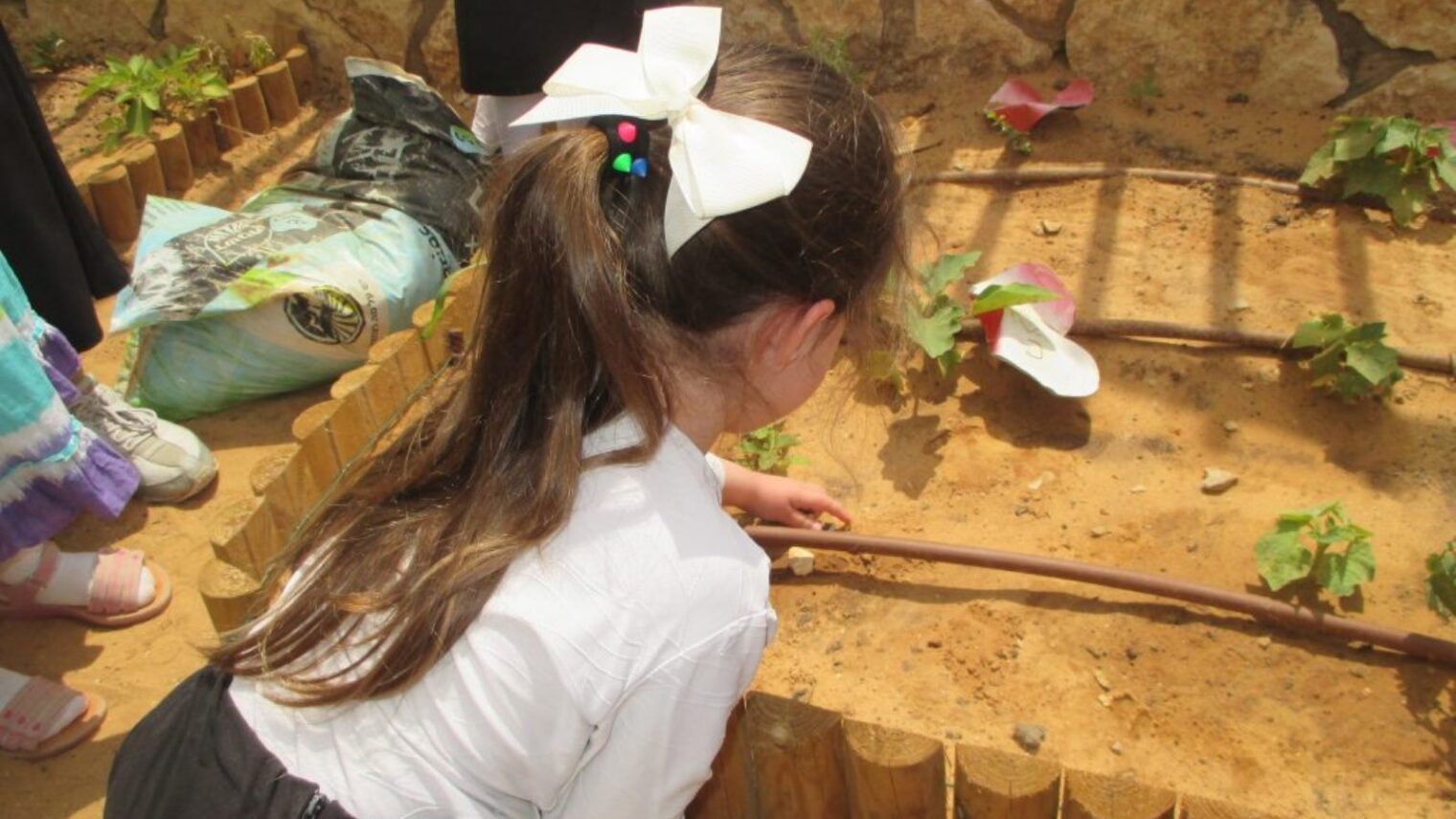Living in dense urban housing, with no access to mainstream media, most ultra-Orthodox (Haredi) Israelis have little awareness of environmental issues and no space to garden.
Haredi environmental non-profit Leshomra was founded in 2015 to spearhead a change. It started with culturally specific educational programs for grades K-3, training programs for educators, farm tours and community events.
More than 10,000 adults and children have participated in Leshomra’s programs, run in partnership with municipalities, community leaders and philanthropists.
The core program, Our Garden, currently sends instructors to teach children in 72 schools and preschools about the effects of littering and the importance of recycling, composting and water conservation. Weekly hands-on sessions include planting and tending a schoolyard garden, composting, making recycled crafts, and learning how each part of the natural world works together.
“We feel the school programs are the foundation of everything,” says Leshomra founder and director Avishai Himelfarb. “The kids come home with these ideas and that’s how it spreads into the community.”

Himelfarb studied therapeutic gardening and ran clubs in various places, including for a Haredi group in Rehovot. As he and his wife moved closer to a Haredi lifestyle, he felt a strong calling to help the ultra-Orthodox connect to the soil.
“No one can deny the urgent need for this program but until now no one has been able to overcome the obstacles to making it happen,” says Himelfarb, who began by doing educational programming at the Society for the Protection of Nature in Israel.
After more than 7,000 Haredi children participated in farm tours he offered in his home moshav (agricultural collective community), Gimzu, donors helped him found Leshomra (“to guard it,” from Genesis 2:15, referring to the Garden of Eden).
“Leshomra is the first and only Haredi group to successfully introduce practical solutions, with full support and participation of the community,” he says.
Full of wonders
About 12 percent of Israel’s population of 8.5 million is Haredi, and more than half are under age 19 – a critical time for inculcating responsible habits.
While environmental education tends to come from the secular sector, Leshomra uses a curriculum rooted in the environmental values of the Torah, taught by Haredi educators and endorsed by prominent Haredi rabbis.
“There’s a strongly rooted Jewish value that God made the world full of wonders. But it’s abstract until we bring it into the classroom for teachers and students who may never have seen a cucumber grow,” Himelfarb explains.
Rabbi Yonatan Neril, founder and executive director of the Interfaith Center for Sustainable Development in Jerusalem, agrees.
“Since the emergence of environmental science and the environmental movement, ecology has been perceived by many Haredi Jews and educational institutions as a liberal and secular issue,” Neril tells ISRAEL21c. “It is therefore encouraging to see Leshomra work within Haredi schools to reveal that care for God’s world is a value and imperative organic to the Torah.”

“This program is 100 percent hands-on and very fun for the kids,” says Yocheved Foifer, coordinator of Leshomra’s Jerusalem program. “We grow cucumbers and sunflowers and watermelons so big that it takes three girls to pick one up! Before we started, even the teachers didn’t know it was possible to grow your own food. It was a very special moment when we got to harvest and eat it.”
Foifer is a graduate of the Beit Yaakov school system for girls, from which Leshomra recruits and trains instructors for preschools and older girls. Since Haredi schools are gender-segregated, male instructors are being recruited through the Open University to lead Leshomra programs for older boys.
Future leaders
Our Garden was piloted last winter in Modi’in Illit and is expanding to more schools there as well as in Jerusalem, Bnei Brak and Ramat Beit Shemesh in cooperation with municipal educational departments.
“There’s a lot of pressure for environmental efficiency in all municipalities and in Haredi cities there is very low awareness of environmental issues without TV and Internet, so it has to be taught,” says Himelfarb.
“This program allows the children to experience the wonders of creation, arouses curiosity and awareness, and strengthens their sense of environmental responsibility,” agrees Rachel Avritscher, director of educational programming in the Jerusalem municipality, where more than 60% of Jewish children attend Haredi schools.

The kids learn how to perform agriculture-related biblical commandments that apply only in Israel, such as tithing. After the children tithe their veggies, they can taste them – some, like kohlrabi, they may never have tried before.
“You’re a lot more willing to give something a try when you’re invested in it,” says Himelfarb. “These concepts go deep into human nature and empowerment, and open your eyes to a different way of living.”
Eighty schools and kindergartens applied for 20 spots in this year’s pilot of Our Garden in Jerusalem; an additional 14 are paying for the program out of their own budget.
“We have been fortunate to receive financial backing from donors and foundations, which allows us to subsidize the programs. This makes it much easier to persuade the Jerusalem municipality and the schools to give it a try. We have not yet encountered a school or parent that has not been interested,” says Himelfarb, who dreams of establishing an educational farm in every Haredi community.
For more information, click here

















